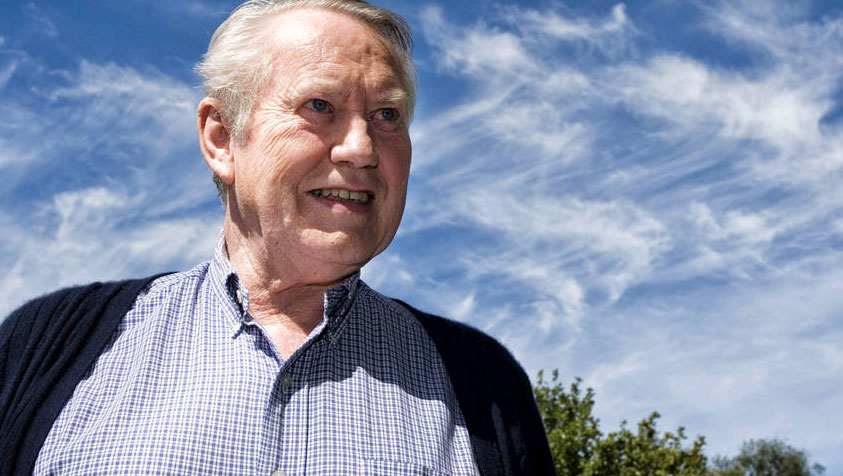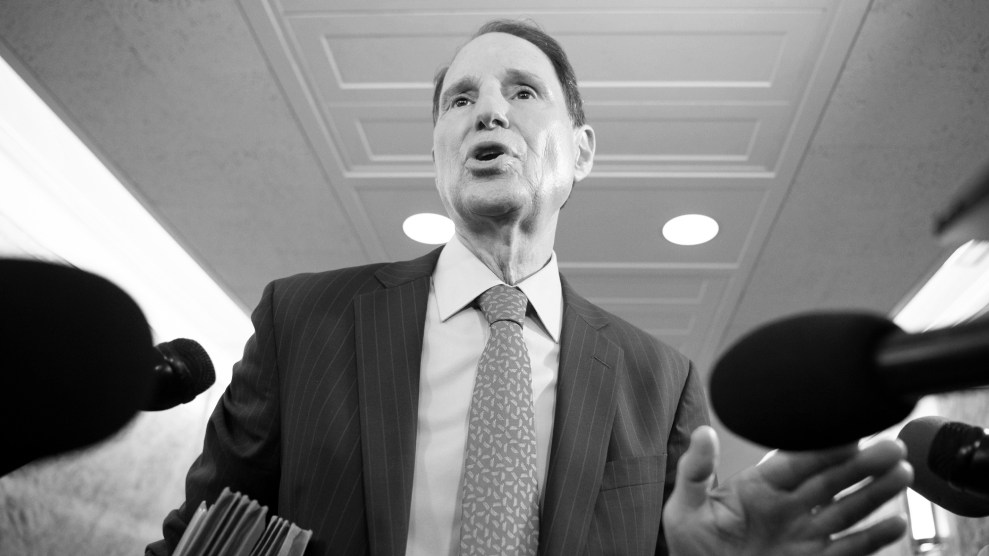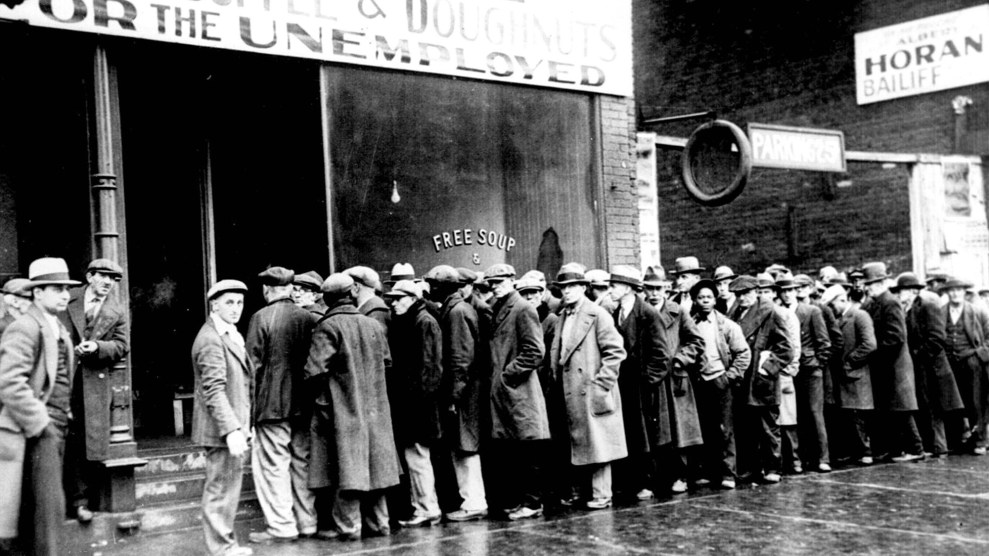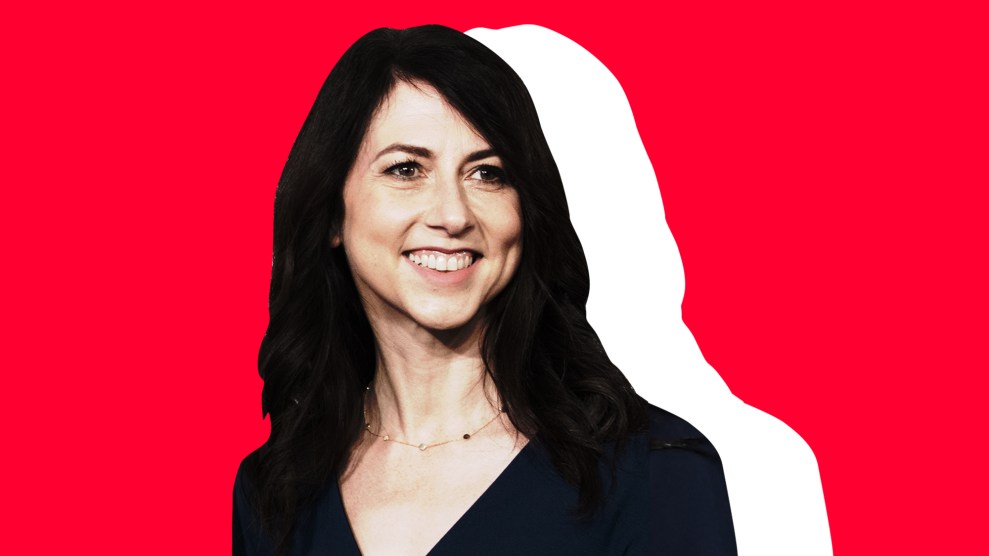
Chuck Feeney's stealthy giving earned him a nickname: "the James Bond of Philanthropy."Atlantic Philanthropies
The selfless billionaire is a rare creature indeed. Chuck Feeney, who died on Monday at the age of 92, was one of them. He is “my hero and Bill Gates’ hero,” Warren Buffett once remarked. “He should be everybody’s hero.” Indeed, Feeney was an inspiration for the Giving Pledge that Buffett and the Gateses launched in 2010, whose 241 megawealthy signatories have promised to dedicate a majority of their fortunes toward charitable pursuits.
Feeney did a lot better than a “majority.” By the time the pledge was announced, he was reluctant to join because he was no longer a billionaire. He’d long since heeded Andrew Carnegie’s advice that a rich man should distribute his fortune for the public good during his lifetime—else “die disgraced.”
In 2016, Feeney’s charitable foundation pledged the last remaining sliver of his staggering wealth to Cornell, capping an epic three-decade giving streak. All told, starting in the early 1980s, Feeney had doled out $8.6 billion, setting aside a scant $2 million for himself and his second wife, Helga, to live on in their old age. For every $100,000 Feeney gave away, he kept about $25.
Feeney grew up in a working-class family in Elizabeth, New Jersey, during the Great Depression. He was entrepreneurial from the get-go according to Conor O’Clery’s 2007 biography of Feeney, The Billionaire Who Wasn’t. After serving a noncombat stint in the Air Force, he was admitted to the School of Hotel Administration at Cornell on the GI Bill, earning extra cash by selling homemade sandwiches at night on fraternity row.
He later hustled his way into a graduate program in France, where he teamed up with a former Cornell classmate, Robert Miller, to sell tax-free liquor, and later cars, to American troops overseas. Their partnership would evolve into a business decidedly more lucrative. Feeney, Miller, and their friends basically invented the duty-free industry, those stores that sell tax-free liquor and perfume and cigarettes and accessories in airports and tourist destinations worldwide. “They were making literally hundreds of millions of dollars a year,” says attorney Harvey Dale, another Cornell alum, whom the partners brought on as their counsel. “Because of the structure that I had helped put in place, almost none of that was being taxed.”
For a time, Feeney and his French wife, Danielle, lived the high life in Hong Kong. They had an apartment in New York City and homes in Connecticut, Hawaii, Cap Ferret on the coast of France, and just outside Paris. They had a luxury car and a driver and threw fancy parties. Miller went so far as to host bird hunts at his own 32,000-acre Gunnerside Estate in North Yorkshire— “the holy grail of grouse moors”—and two of his daughters married actual princes.
But over time, Feeney, who viewed wealth primarily as a scorecard of his business prowess, grew increasingly uncomfortable with its trappings. He discussed his reservations with Dale, by then a close friend, who introduced him to Carnegie’s writings. Feeney was particularly smitten with Carnegie’s famous 1889 essay, Wealth, later retitled The Gospel of Wealth. He began to eschew the material extravagances, dressing plainly, driving a normal car, and wearing a $15 watch. He traveled constantly, carried whatever he’d been reading in a plastic tote, and could have afforded a fleet of private jets but insisted on flying coach instead. “He famously said, ‘I don’t need more than one pair of shoes. I can only wear one pair at a time,’” Dale told me.
Feeney hatched a plan to give all his money. Duty Free Shoppers, as the business was called, was obsessed with secrecy. Its profitability depended on governments and business rivals undervaluing the company’s right to sell tax-free concessions, so the partners held their cards close. Feeney, who didn’t want people hounding him for money or charities viewing him as their ATM, applied the same ethos to his philanthropy. His stake in DFS and other businesses was consolidated into a holding company called General Atlantic Group, incorporated in Danielle’s name to sidestep US taxes and to keep Feeney’s name off the paperwork. Even photographing him was verboten.
One day in 1984, without telling even his business partners, he transferred ownership of General Atlantic Group over to the Atlantic Foundation, a charitable entity he’d set up in Bermuda with Dale as president and CEO.
He and Dale also created an intermediary firm to manage charitable gifts and interview would-be grantees. Those beneficiaries, who were forbidden from acknowledging their gifts publicly, had no idea where the money was coming from.
Chris Oechsli, Chuck and Helga’s personal attorney and until recently the CEO of Atlantic Philanthropies (the now-defunct umbrella entity that included Feeney’s Atlantic Foundation), told me that when he first interviewed for a position at General Atlantic in 1990, he was unaware who Feeney was or the role he played in the organization. Before meeting his future boss, Oechsli was asked to sign a confidentiality agreement. He worked at General Atlantic Group almost two years before realizing the whole thing was a philanthropic venture. “We operated on a need-to-know basis,” Dale explains.
Feeney, who was Irish-American, used his riches over the years to broker a peace agreement in Northern Ireland, finance a public health system in Vietnam, expand access to AIDS drugs in Southern Africa, and support young leaders around the world—the Atlantic Fellows—who are working to improve their societies. He bankrolled Ireland’s public university system and donated billions to American universities—including about $1 billion to Cornell—never allowing the schools to affix his name, or Atlantic’s, to the buildings he paid for. He lobbied, too, to keep himself off the Forbes list, and managed to dispense with huge sums before the New York Times finally outed him in 1997. His stealthy exploits earned him a nickname: “the James Bond of philanthropy.”
The word “philanthropy” comes from the Greek philanthrōpos, an amalgam of phil (love) and anthrōpos (human). Loosely translated, it means “humane,” or “kindly.” Given the right incentives and motivations, philanthropy can be exactly that. When the public learned of his generosity, Feeney was hailed, feted, and awarded honorary degrees. O’Clery’s book was a best-seller. And Dale told me he’s been advising several “very wealthy people” who plan to follow in Feeney’s footsteps.
I met Feeney in September 2020 at General Atlantic Group’s San Francisco offices. It was a momentous occasion: the signing of his foundation’s dissolution papers. Then House Speaker Nancy Pelosi sent a personal note to mark the occasion, and just before I arrived, Feeney, whose pandemic ensemble included a navy blue mask, had watched a laudatory video from former governor Jerry Brown, with another one from Gates on deck. Feeney, who had suffered health setbacks and could no longer speak, nonetheless appeared to be alert and taking in this celebration of a life well lived.
The existence of billionaires has been called a policy failure, and there’s a lot of truth to that. Hitting the three-comma mark is next to impossible in the absence of tax codes that offer the affluent extraordinary workarounds and favor passive investment profits over actual work. In Feeney’s case, the international nature of the company allowed him and his partners to largely avoid US taxes altogether. But he did give it all back in the end, which really is something—the only Giving Pledger I know of who is even on track to match that feat is MacKenzie Scott, who has been thoughtfully shoveling her former husband Jeff Bezos’ fortune out the door as fast as she can. So think of Feeney what you will. Just don’t call him self-serving.
Adapted from Jackpot: How the Super-Rich Really Live—and How Their Wealth Harms us all, copyright 2021 by Michael Mechanic, reprinted with permission from Simon & Schuster.


















